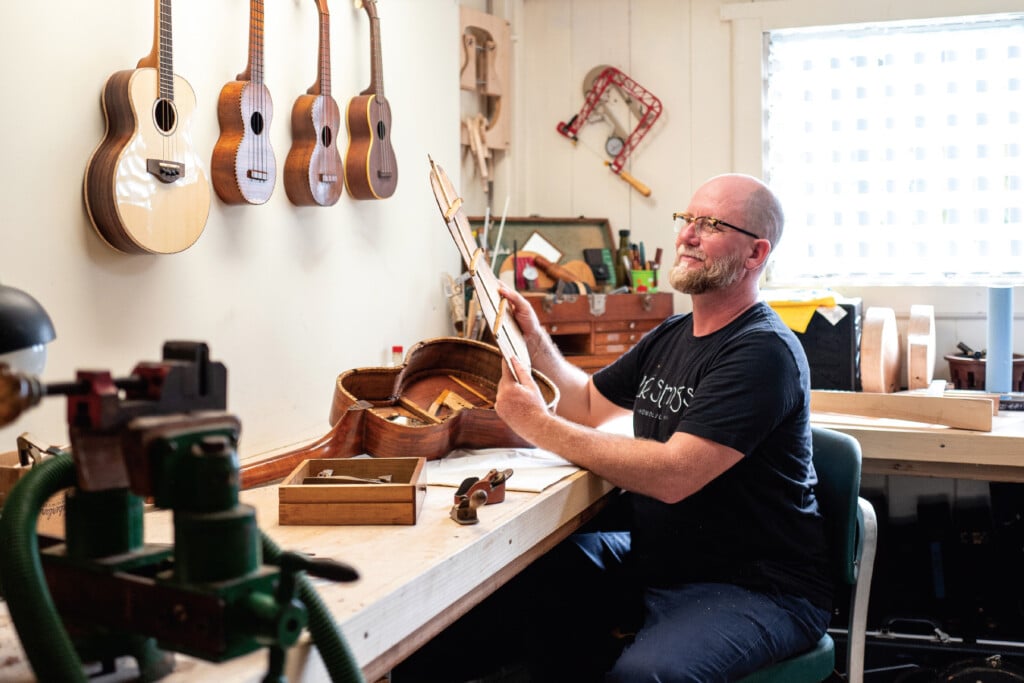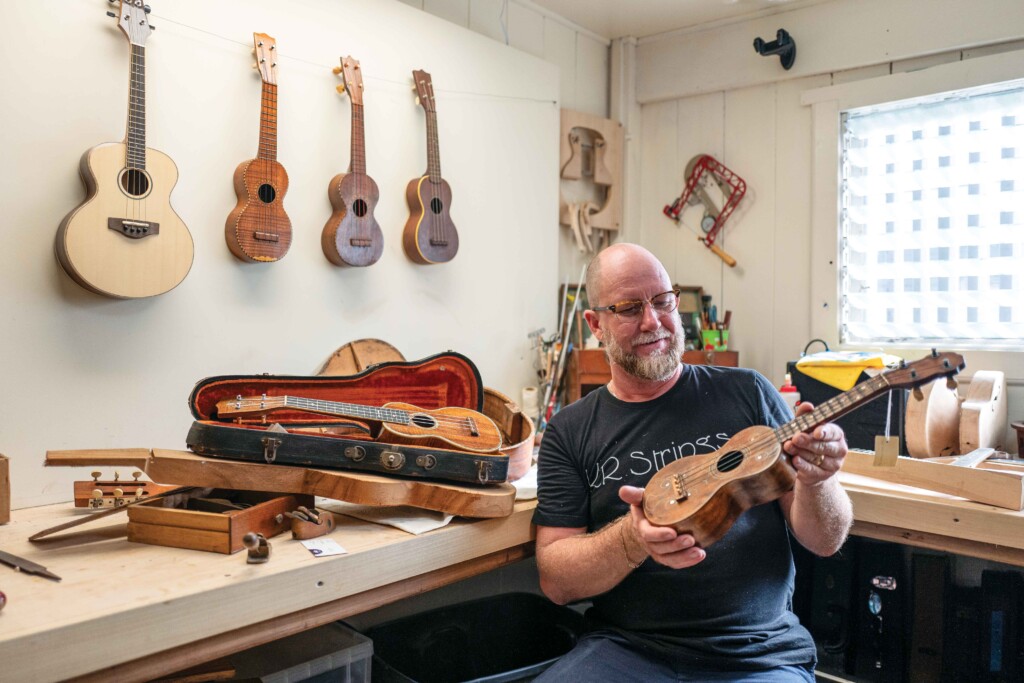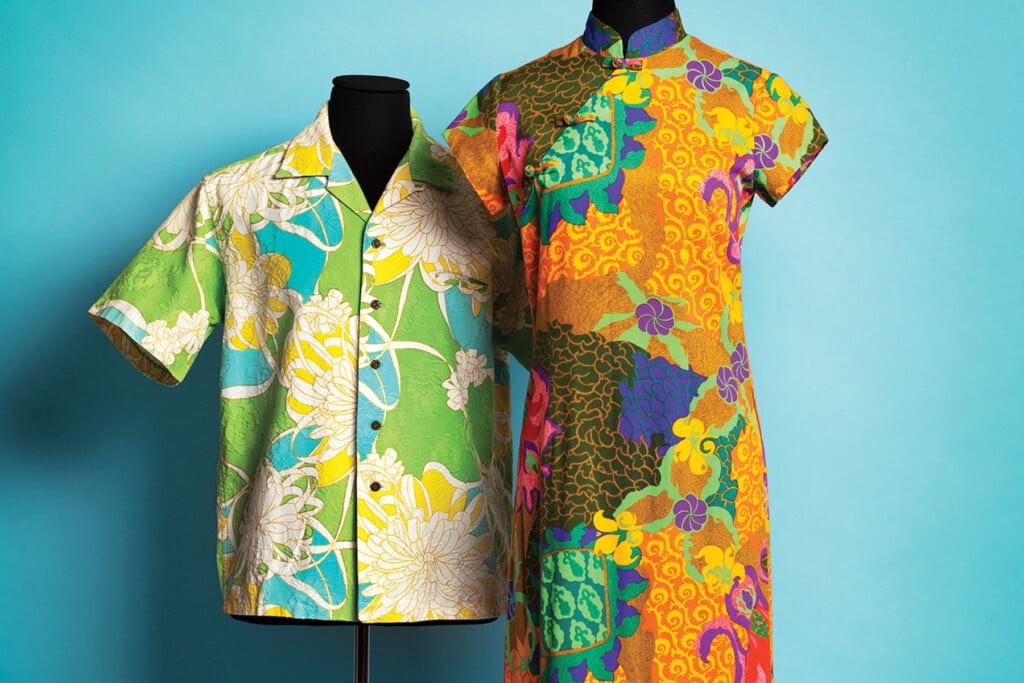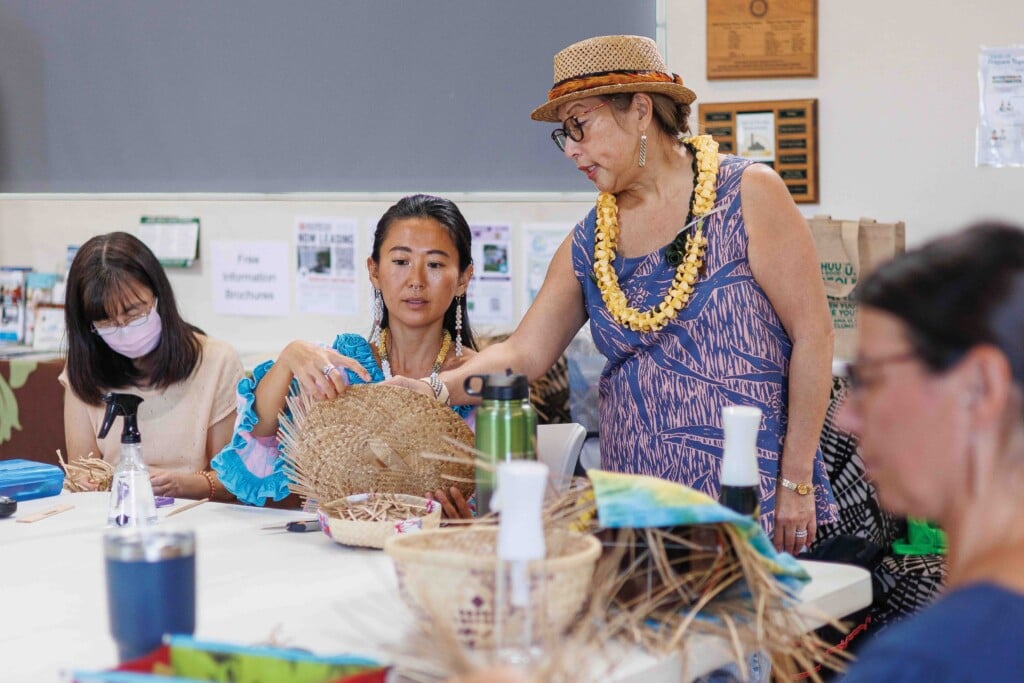My Job Is Repairing Rare Stringed Instruments
Ki-Lin Reece is a luthier at KR Strings, where he restores family heirlooms and old Hawaiian instruments.

Name: Ki-Lin Reece
Job: Luthier at KR Strings and Executive Director of The Kealakai Center for Pacific Strings
Origins: “My family was musical, and we grew up playing country and bluegrass and folk music, and I was interested in taking apart instruments,” KiLin Reece says about growing up in Bonny Doon, California, just northwest of Santa Cruz.
At 14, he entered an apprenticeship with a luthier – a maker and repairer of stringed instruments such as guitars and violins – and later worked for a guitar company in California. When Reece moved to Hawai‘i, his skills helped put him in contact “with this incredible community of musicians here,” he says. “I’m honored and blessed to be here doing this work.”
Process: At the company he founded, KR Strings, Reece repairs and cares for damaged or worn instruments, many of them rare or in families for generations. The work includes cleaning, sealing, patching and refurbishing instruments while retaining their original character.
“The first step is conversation with the family and owners of the instrument. Sometimes people are fixing instruments because they want to keep playing them in their band or for their family. Other times they’re fixing the instruments so they can sell them or pass them to their descendants.”
Reece tries to maintain ancestral practices. “We try to do everything using the original materials and tools that would’ve been used at the earliest stages of the instruments’ origins,” he says.
He says these instruments often carry the stories of people who have used them and the music they played, and are essential to keeping old musical practices alive and accessible for today’s musicians.
Repairing History: One instrument that stands out to Reece was an ‘ukulele given to his friend Doug Tolentino by the Prendergast family. “He is the caretaker of that ‘ukulele.”
It was played by Eleanor Kekoaohiwaikalani Wright Prendergast, who lived from 1865 to 1902 and composed “Kaulana Nā Pua” and other mele. Reece says the song, also known as “Mele ‘Ai Pōhaku,” was “an instrumental part of the resistance movement to the overthrow of the Hawaiian Kingdom and is still today an anthem of the sovereignty movement.”
“That ‘ukulele is a physical connection to those sentiments, and the lyrics and authorship of that song. We were honored to feature that song in an exhibition performance at the Bishop Museum.”
Other Passions: Reece also manages and directs the Kealakai Center for Pacific Strings and Pacific Strings Museum, a treasure trove of historic Hawaiian music, instruments and records – both on and offline.
“KCP Strings is the nonprofit that grew out of my experiences with this community of musicians here that led me to understand that Hawai‘i has contributed profoundly to the world of music as we know it today.”
Future Projects: Reece and KCPS President Noah Ha‘alilio Solomon are currently creating the Digital Pacific Music Archives and Pūmanamana Mele Index, online archives showcasing historic recordings, manuscripts, sheet music, photographs and Hawaiian language primary source materials.
“The dream is that for the first time, for a lot of people, these Hawaiian mele, or compositions, will be described by Hawaiian language scholars, kumu hula and cultural practitioners with a deep and thorough understanding of the Hawaiian language.”
For Reece’s luthier services, go to krstrings.com. To learn more about the Kealakai Center for Pacific Strings and Hawaiian music history, visit kcpstrings.com.






